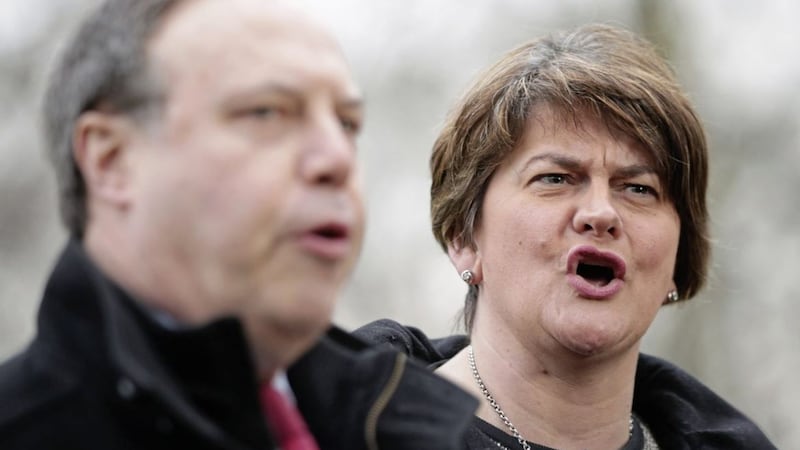For a moment there it looked as though Arlene Foster was headed back to queen it over Stormont, having given republicans no more in months of ‘negotiation’ than legislative acknowledgement of Irish.
She was only meant to be first minister again if exonerated by an inquiry which still has months to run, or that’s what Sinn Féin sold to their believers a year and a bit ago. A fortnight back they looked almost set to emerge from the smoke with a miniature ‘agreement.’
As for the promise or two they think they have from the British government, well, that was a side deal. Foster and company – whoever her team really was - have been blowing smoke at that as well.
A quantity of rewriting is still going on. But the veteran duo of Eamonn Mallie and Brian Rowan have performed a real service to politics, history and the people they live among, by producing documentation that filters fact from fake fact. It’s a DUP characteristic to rubbish journalists. Sinn Féin are good at it too. But Rowan’s cool reporting and the Mallie website have been impossible to dismiss.
If the DUP had signed off on the much negotiated draft of February 9, both parties would have had to revise their supposed positions on the spot. Instead the Foster leadership and negotiating team came apart in sheer funk. The DUP’s rewrite of what had happened fooled nobody. Sinn Féin for once told the story straight and turned their own fortunes around, at least temporarily. It may be part of the transition they tell us they are going through. Maybe this has been a lesson for them? And maybe they learned from their own recent effort at a rewrite.
Proper historians revise their accounts when they uncover fresh documentation. Sinn Féin chairman Declan Kearney’s contortion of the early civil rights era was a back-projection to inflate the IRA’s role. It read like something that only the bossiest and least sceptical republican parents might feed to the meekest of their children.
The pity of it is that here was a 21st century republican vindicating the knee-jerk unionist response of the time, that the civil rights movement was just an IRA plot. That was a denunciation that provided spurious justification for Paisleyite aggression, and excuses for the RUC attitude towards marches.
Paranoia and dark imagining was what the Reverend Ian shouted on the streets, preached from his pulpit and wrote in the Protestant Telegraph. The cowardice of unionist governments in the face of hardline opposition to reform, the street clashes that Paisley fomented and how the police reacted were major factors in setting the Troubles alight. The small, ineffectual and scarcely-armed IRA of the time was incidental. It bore no resemblance to the Provisional IRA that split away from it and in another couple of decades generated today’s Sinn Féin.
Delusional, said Bernadette McAliskey of Kearney. But surely claiming undue credit and indeed ownership is not delusion but standard republican behaviour. Today’s mainstream republicans never liked McAliskey for that very reason. Nobody owned Bernadette except Bernadette.
Civil rights pioneer and SDLP veteran Bríd Rodgers swiped back at Kearney that all the IRA ever wanted was ‘Brits Out’. In understandable exasperation the usually crisp-minded Rodgers had backdated the Provos as well.
The Cathal Goulding leadership of the 60s indulged in wishful thinking about unifying working-class Protestants and Catholics. Where ‘Brits Out’ was going to fit had yet to be figured. As they turned their guns later on the IRSP/INLA the Goulding circle sometimes mused, regretfully, that this was how they should have dealt with the fledgling Provisionals.
And here we are, decades on from decommissioning, with any further negotiations pegged to the lowest level, unionists inflamed at the very idea of legal status for Irish and equal marriage fobbed off to a vague fate via Westminster.
The DUP had no interest in negotiating. The best Sinn Féin seemed to hope for was implementation of agreements made long ago – or that they understood had been made, like the British undertaking to pass an Irish language act. Now another understanding is that the British will release the money for those long-delayed inquests. To be delivered without agreement on everything else with the DUP? Have they got that in writing? Signed?
Once upon a time, this brand of republicans looked good at negotiating. Then again with this brand of unionism negotiation may be impossible. And as the tired old joke says, you wouldn’t start from here; cue deep breaths all round.






